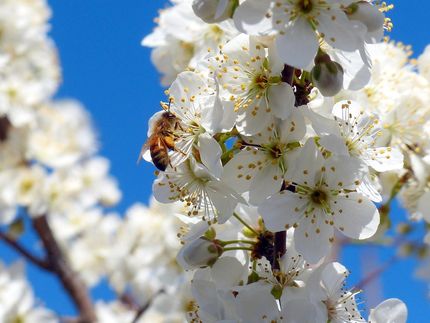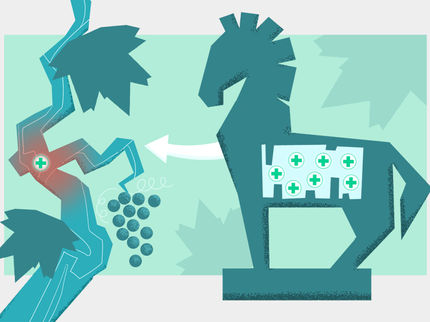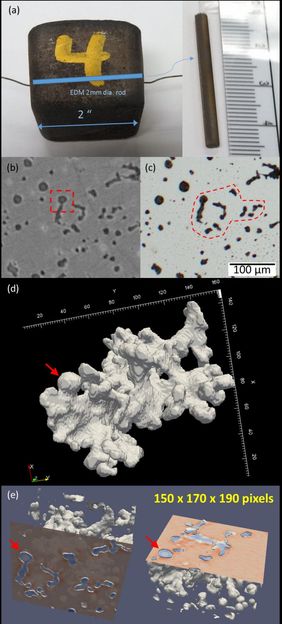BASF to realign crop protection research and development
- crop protection research and development are core BASF competencies
- Organization and capacity being adjusted to future requirements
BASF Aktiengesellschaft, Ludwigshafen, Germany, is realigning its global crop protection research and development activities to meet future needs. R&D activities and organization will focus even more closely on attractive market objectives. Active ingredient research will be intensified in insecticides and fungicides, which are areas that have a substantial market potential for innovative products. Herbicide research is being adjusted to reflect a declining market with fewer opportunities. Capacities are being reduced in development and formulation of products. In addition, the promising area of seed treatment is being added to the research program. BASF plans to position itself strongly in this growing market segment following its acquisition of several products from Bayer CropScience.
"We are actively meeting the challenges posed by rapid developments in the crop protection market," said Hans W. Reiners, President of BASF's Agricultural Products division. "R&D continues to be one of our core competencies in agricultural products. It will remain a cornerstone of our success in the marketplace and will help us achieve our profitability targets. Our new products F 500® and Boscalid are excellent examples of this success. I am convinced that the realignment of our global R&D activities will make us even stronger and that, together with our activities in plant biotechnology, BASF will be well positioned for the future."
In light of the increasing costs due to rising registration requirements over the past years, development work will concentrate on areas with high opportunities for innovation and active ingredients with high market potential. Rising costs make it unprofitable to develop active ingredients with only a small potential market. BASF has already started the step-by-step consolidation of its existing portfolio of active ingredients, formulations and products, which will further reduce the development workload.
Within the next three years, positions in the area of crop protection research and development at BASF will be reduced worldwide by more than 20 percent to about 1,130. Research activities in Princeton, New Jersey; Greenville, Mississippi; and Ebina, Japan, have already been closed in the course of this year. By 2003, BASF will also end its direct engagement in Gosport, Great Britain, and Nelspruit, South Africa. Capacities of the remaining R&D sites will be adjusted in accordance with the new strategy. Around 100 jobs will be eliminated over the next three years in the Ludwigshafen and Limburgerhof R&D units. The planned acquisition of the fipronil package from Bayer CropScience will further strengthen the global research centers in Limburgerhof/Ludwigshafen, Germany, and Research Triangle Park, North Carolina.
Over the past decade, BASF's research and development has been particularly successful in fungicides, which help protect crops against fungal diseases. Selectively expanding fungicide and insecticide research will enhance opportunities to discover innovative active ingredients. The potential market for innovative insecticides is expected to reach about EUR3 billion within the next decade. This is due not only to the fact that registration problems will force older products out of the marketplace, but also because insects tend to build natural resistance against existing products over time.
Reiners believes that the security and future of jobs in crop protection research and development will also depend to a large extent on the political climate: "We require a predictable environment for our cost-intensive and protracted research. However, particularly in Germany, for a number of years we have been increasingly confronted by new requirements that stifle innovation. I therefore appeal to political leaders to deal with this important area of innovation constructively. We welcome a dialogue and are ready to contribute to a workable solution."
With sales of EUR3.5 billion in 2001, BASF's Agricultural Products division, headquartered in Mount Olive, New Jersey, is a leading supplier and marketer of herbicides, fungicides and insecticides. Based on its broad experience in R&D, manufacturing, marketing and sales, the vision of BASF's Agricultural Products division is to be the world's leading innovator, optimizing agricultural production, improving nutrition, and thus enhancing the quality of life for a growing world population.
Most read news
Topics
Organizations
Other news from the department business & finance

Get the chemical industry in your inbox
By submitting this form you agree that LUMITOS AG will send you the newsletter(s) selected above by email. Your data will not be passed on to third parties. Your data will be stored and processed in accordance with our data protection regulations. LUMITOS may contact you by email for the purpose of advertising or market and opinion surveys. You can revoke your consent at any time without giving reasons to LUMITOS AG, Ernst-Augustin-Str. 2, 12489 Berlin, Germany or by e-mail at revoke@lumitos.com with effect for the future. In addition, each email contains a link to unsubscribe from the corresponding newsletter.





























































